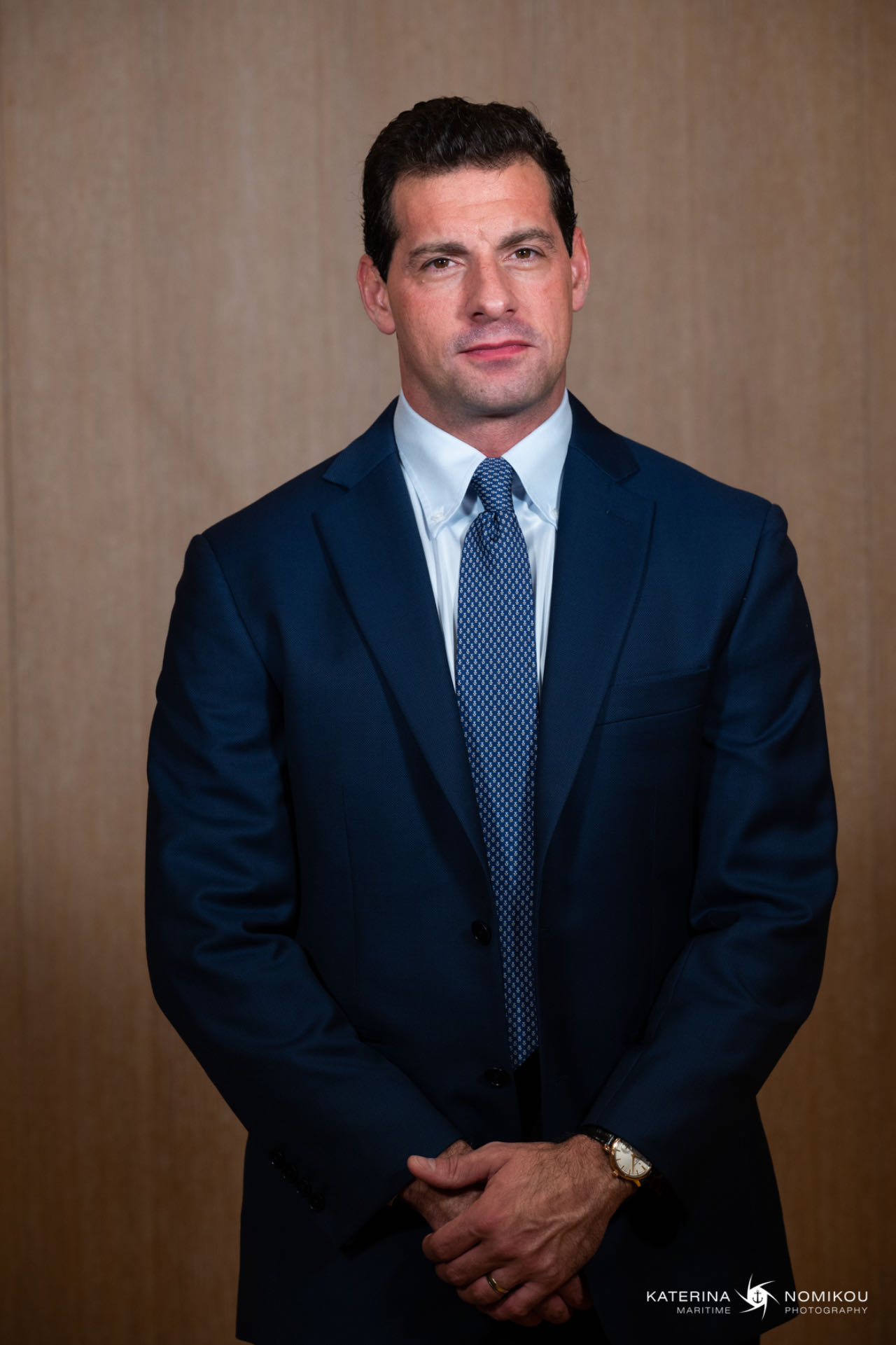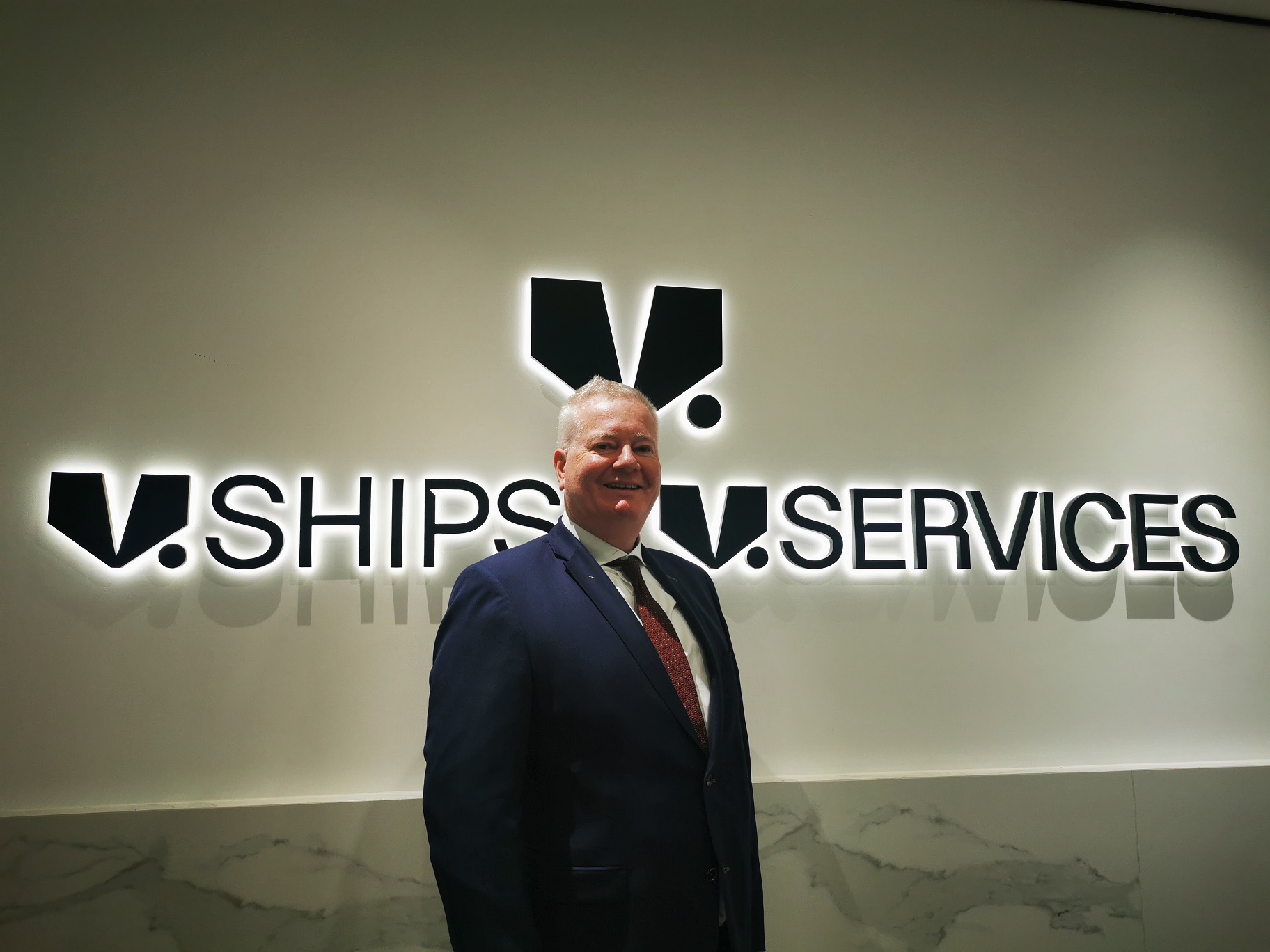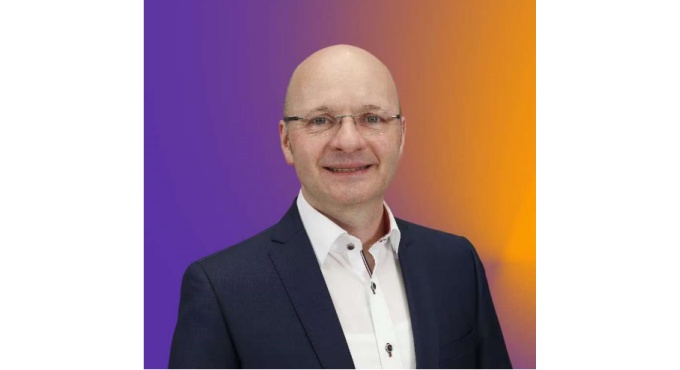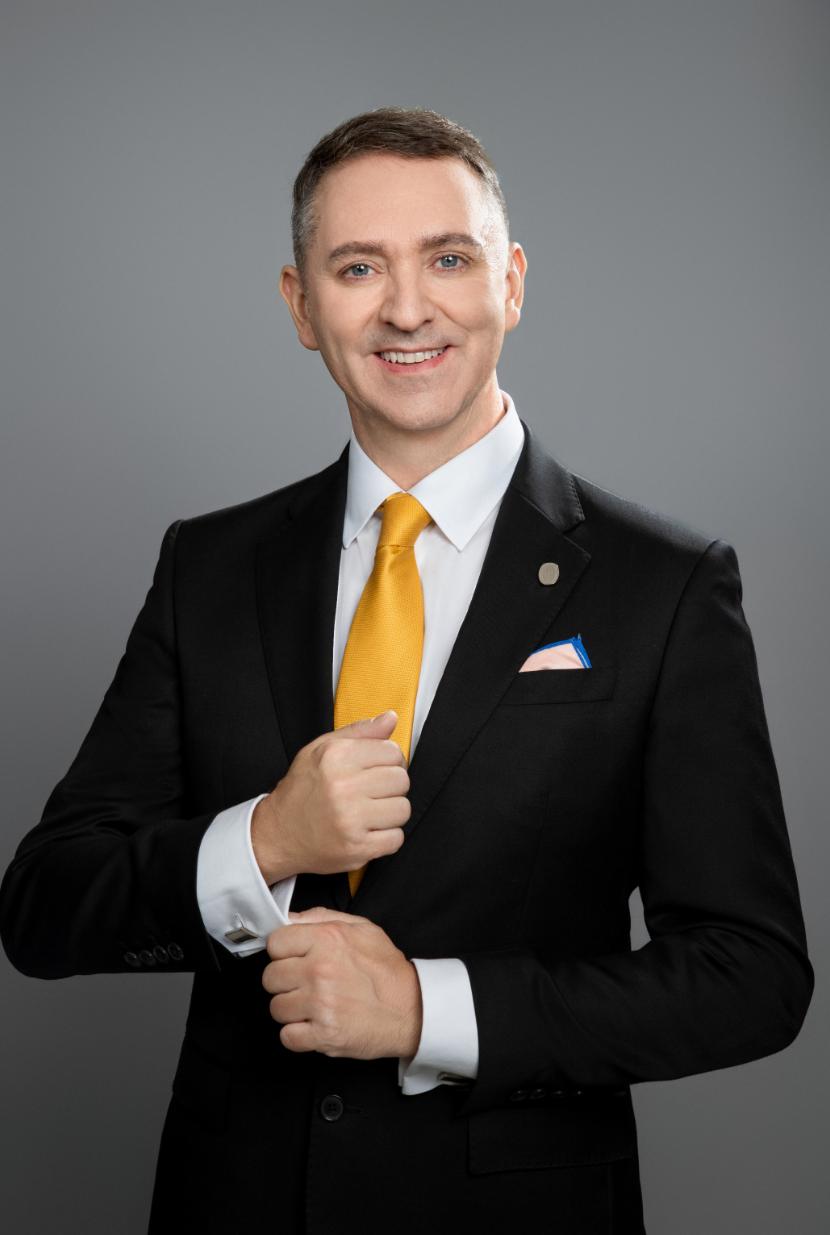Lloyd's List released the "Top 10 Shipmanagers 2023" at the end of 2023, showing that V.Group ranks as the world's second largest third-party shipmanager in terms of total under management.
In the context of green and digital transition, third-party shipmanagers, who provide ship management and marine services to shipowners, are facing great challenges as well as opportunities for growth.
In July last year, V.Group acquired Belships Management (Singapore), further expanding V.Group's scale, and on November 29th, V.Group announced a strategic partnership with Aither, focusing on the seamless trading of carbon credits under EU ETS, which will directly benefit V.Group's clients.
Clarkson data shows that China has successfully surpassed Greece to become the world's largest ship-owning country in terms of GT last year. In addition, also according to Clarkson data, by the end of 2023, Chinese leasing companies have a total asset balance of about $89 billion in ship leasing programs, an increase of 10% from the end of 2022. Clarkson Research calculated that four of the world's top 20 financing institutions are Chinese leasing companies.
V.Group is one of the early entrants into the Chinese market and one of only two top foreign ship management companies with a large office in mainland China.
To further explore V.Group, Xinde Marine News conducted an interview with Robert Desai, Chief Commercial Officer (CCO) of V.Group, and Jan Bremer, Managing Director of V.Group China, at its Shanghai office. Robert Desai and Jan Bremer shared their insights on V.Group's new strategy, the future of the ship management, opportunities and challenges in the shipping industry, the Chinese ship management market and the Chinese seafarer market.


Robert Desai, Chief Commercial Officer (CCO) of V.Group

Jan Bremer, Managing Director of V.Group China
Xinde Marine News: Please make a brief introduction about V.Group to our readers. By the way, could you please tell us what’s meaning of V. Group? what is the meaning of the V? Where did the name V.Group come from?
Robert Desai: V.Group provides a full range of ship management and marine support services to ship owners and operators around the globe. Within V.Group we have two divisions – V.Ships and V.Services.
V.Ships is a traditional technical manager, a ship manager. We have about 600 vessels in ship management across the world, from Brazil to Florida to China to Athens, Hamburg, Singapore, Glasgow, Oslo, Copenhagen. We manage the full range of marine vessels, including tankers, containers, bulkers, offshore and leisure vessels, wood chip carriers, PCTCs and other categories, even FPSOs. Where there is shipping, V.Group is there in ship management.
V.Group has access to an international pool of over 44,000 seafarers across all sectors, each of them supported by an onshore team of over 3,000 colleagues in over 30 countries and 60 offices around the world.
On the V.Services side, we have a number of business units. Technical services, through SeaTec, covers project management and new build supervision, inspections, repairs and maintenance, communications, condition monitoring and underwater services. Then we have an insurance broker called V.Scope. They provide hull and machinery, P&I insurance, to ships under our management and third-party customers. We have Global Marine Travel, or GMT, which is our marine travel company. An integral part of V.Group, Oceanic is a world leader in marine catering, hospitality and wellbeing services, committed to crew welfare. We have partnered with ShipMoney to digitalise crew and corporate payments, for example crew can receive their wages digitally through ShipMoney.
V.Group, founded in 1984 as V.Ships, is owned by a private equity company, Advent International.
Xinde Marine News: Please tell us more details about your Chinese office, numbers of employees, the functions and business.
Jan Bremer: We have approximately 110 staff in our Chinese office divided into different operations. For technical ship management, there are roughly 60 staff supported by procurement, HR, finance, vessel finance, superintendents and fleet managers. Then, we have roughly 11 staff looking after technical services and SeaTec. We have about 30 people in crew management including crew recruiting, crew retaining and our training center. At the moment, between 50 and 60 ships are in management in Shanghai office. In Nantong we have a technical service office that handles tax and social benefit activities for people working and living outside Shanghai.
Xinde Marine News: Since you have such a large office in China, we can assume that V.Group attaches great importance to the Chinese market. Could you please tell us more about the strategy plan of your company in China? What opportunities and challenge does V.Group see in China now?
Robert Desai: Good question. We can't be everywhere at the same time, so we go where the greatest opportunities are typically. China is the world's largest shipowner as of last year and will continue to grow, so it is significant that the capital and investment go into Chinese shipping industry. Chinese shipbuilding is already the biggest in the world by a long stretch and will grow further. As far as I understand, Chinese shipbuilding quality has now surpassed that of Japan and even Korea, which would make it the world's leader in merchant shipping construction. In fact, only probably cruise ships, very specialized navy vessels or offshore vessels might be built in Italy or Norway, for example, but other than that, China is the place to build, which is a very impressive achievement.
From our perspective, we have two focus areas. One is we need to be here to understand the local market, speak Chinese, employ Chinese people, understand the culture, pay respects to the Chinese ecosystem by our presence, by our time, by our commitment and our investment locally. With the right local leadership, which we now have Jan Bremer, we believe we have the opportunity to do well in China.
The other thing is having the capabilities to create value and deliver a world-class service to Chinese shipowners, who quite rightly are looking for the best quality, not just the lowest price. We believe that through our global capabilities, global scale, digital tools, global procurement leverage, our global seafarer recruitment network and our decarbonization capabilities, V. Group can create real value for Chinese shipowners. We can be their guide to the world of shipping. I would say that we are not doing enough in China. We need to invest more. We need to speed up because this market will only continue growing.
Xinde Marine News: How many Chinese seafarers are working for V.Group now ? Is there any plan to employ more Chinese seafarers?
Jan Bremer: On our 50 to 60 vessels in ship management, the majority of the crews are Chinese and we are continuing to grow our own pool of Chinese seafarers. We are working very closely with the Shanghai Maritime University and a couple of weeks ago, we visited the Lingang campus to extend our support. We also are looking into a collaboration between the Shanghai Maritime University, the MSA and ourselves as a training base for junior seafarers. We will use our training center to educate the young Chinese students at the Shanghai Maritime University. With these goals we want to ensure that seafarer roles will be attractive for young Chinese people. We also discussed during the visit with Robert that we are looking into the possibility of sending young Chinese cadets abroad to one of our V.Group offices to learn and work there for a certain amount of time. V
Robert Desai: English language skills are very important. English is the language of choice in the shipping world and I do believe that if spoken English could be improved even slightly that would make things even easier and even better.
We clearly see that the quality of the Chinese seafarers is very high, so we and our owners are extremely pleased with the Chinese seafarers on board our vessels. However, it is a globally competitive market. For a non-Chinese shipowner, he can choose the seafarers from wherever he likes.
It is up to us to develop our seafarers’ talent, to make them, to train them, to keep them so that in five or 10 years from now, when you need ammonia ships, or LNG ships or nuclear fuel ships, you have capable people that can run them safely.
Xinde Marine News: Decarbonization of shipping, an inescapable topic, and V.Group partners with Aither to provide carbon trading solutions for shipowners, and what kind of other services can V.Group provide for shipowners? Please tell us more about this.
Robert Desai: Another good question. Decarbonization is a core topic for every shipowner. V. Group wants to be the manager that can best optimize energy efficiency for the owners. Some years ago, we established a partnership with Maersk Mc-Kinney Moller Center for Zero Carbon Shipping. We are a strategic partner and I am on the transition advisory board of that institution. It gives us access to a lot of other strategic partners, like technology developers, ship owners, engine consultants, engine builders, etc. We work jointly on solving problems relating to decarbonization in shipping. Our Group Director of Sustainability and Decarbonisation is assigned to the center and he is working specifically on the center's ammonia study, where we assess ammonia as a fuel in terms of the crew safety. We will also bring it into our own training centers and test it, thereby creating a industry standard for safe handling of ammonia for crew.
We'd like to take the lead in developing technologies or the way that technologies are applied to the adoption of these fuels in the future. Currently, ammonia is not used as a fuel, but for it to be adopted as a fuel, you need the technology, money and the ability to do it safely. Otherwise, it cannot work. We have a role to play in that. We consider it our obligation to guide our shipowners through this maze of various technologies and fuels. We think that the world will move in this direction. We need to be guiding them towards that.
In November 2023, we set up a strategic partnership with Aither, which provides carbon trading solutions for shipowners and other industries. Through this partnership with Aither, V. customers have access to a dedicated online portal to ascertain the cost of the carbon that has been used, be given the opportunity to purchase carbon credits and have them deposited with the EU Registry in order to maintain compliance with the incoming EU ETS scheme. The verified emissions data for vessels under technical management by V. will be provided to shipowners via our ShipSure platform, our digital ship management system.
Xinde Marine News: There are more and more alternative fuel vessels/orders. Do you have any opinion or insight on the future fuels?
Robert Desai: I think before we talk about fuels, we should talk about the existing 75,000 vessels that are floating on the ocean today and what can be done by pure efficiency optimization. I think there's a 10% to 15 % reduction in fuel use only from optimization of efficiencies within the existing that includes voyage optimization, human behavior on board, not running generators when you don't need them and various things like that. And on the basis of the above actions, if you add certain minor refits or upgrades, like silicon paint systems, air lubrication and various other technologies, you can increase efficiency without burning the new fuel. Then there is also wind propulsion which is now coming.
Once all of these have been considered and addressed, you have the question of new fuels. There is a significant challenge to developing and scaling up marine fuels. Ammonia cannot work for every application. Methanol cannot work for every application. LNG is also suitable as a transition fuel and is part of the mix. But it won't solve the problem. LNG has a 20 % reduction compared to fuel oil, but it also has methane slip associated with it, which has its own challenge. Because methane is contributing, you actually get a worse outcome. The engine manufacturers are now working on this and addressing the issues, hopefully we will see further updates soon.
To get to net zero shipping will be extremely challenging. The shipping fleet grows every year and the ships are in service for a long time. Thus, to break carbon and cut down on its use is going to be a challenge. There will be a multitude of solutions to get there, like EU ETS and other similar regulations which serve to equalize the difference between fuel oil and the cleaner alternatives. It costs you 10 times more in fuel by methanol than by fuel oil. Hence, you have to scale up the methanol production in order to reduce the cost. And then you have to impose a cost on the conventional fuels. And that's how it will start equalizing. But now, shipowners are not sure what to do, and most of them are building conventional vessels, sometimes with dual fuel, sometimes LNG, but very few vessels with methanol are actually in service today.
Xinde Marine News: Your CEO René Kofod-Olsen said in an interview, “Improving digital capabilities has been part of future-proofing of V.Group”. Could you please introduce to us more about the latest progress of V.Group in digital construction? (land and onboard)
Robert Desai: There is the same system on the vessel and on the shore - Shipsure. Shipsure is an end-to-end digital ERP. It does technical management, crew management, procurement, finance and accounts. Any other function that you need in a shipping company is done within that system. All new tools that we're developing, for example, for EU ETS compliance and for voyage optimization, are also built into the system.
On Shipsure, you can see your vessels and how they're performing, where they are in the world, if your vessel has any risks, any incidents, any issues and if the crew is waiting to be relieved, etc. It's all real time and transparently visible to us, to the crew and to the client.
Shipsure gives you the processes of how things are done. You just need to follow the process through the system. Moreover, it creates consistency in how we do things. If a Chinese superintendent moves to Glasgow, he worked in the same system in the same way. We do it the same way all over the world, which means we are a scalable organization.
Xinde Marine News: Last year there are some notable cooperations in ship management market. V.Ships acquired Belships Management in July 2023. And we can see that the rank for top 10 shipmanagers has dramatic changes in recent years. What does V.Group think about this? What does V.Group think about the size of the fleet?
Robert Desai: Traditionally, very few managers have gone to 600 or 650 vessels, and they've not grown beyond that. It's not because the market isn't there. It’s because companies weren’t structured to grow further, and the technology wasn’t available. When you have too many vessels, you cannot hold your hands around them if you don't have the tools.
What we have been doing for the last two years in V. is setting a new strategy and creating a platform that can scale. But before it can scale, it needs to be right, to have the digital tools and to have the people that want to use the tools and can use the tools effectively. Once all of those are in place, you have a very robust machine that performs very consistently and effectively. On the basis of that, the action of adding ships to the fleet will become easy. But if you have operations that are different from each other, it's just two business units operating independently.
At V., we work as one. Whether it is V.Ships China or V.Ships Brazil, their managing directors will say they are a part of V. They work within one system, use the same tools and the same digital technology. V. Group runs ships in the same way regardless of where it is in the world. So to double the fleet size in China is not a problem for us because we have the system that can scale. We just need a few more superintendents, fleet managers and more office space.
Xinde Marine News: Why should owners choose V.Group?
Robert Desai: First of all, we have Shipsure which is a great digital solution. It means that we have the best digital capabilities and we work as one organization, operating as V. wherever we are in the world. The second one is our decarbonization capabilities which is becoming more and more important. We have not only zero carbon center affiliation with the Maersk Mc-Kinney Moller Center, but we have real physical capabilities through SeaTec to consult with our owners and provide real practical solutions to meet their energy efficiency needs. Thirdly is the breadth of our V. Services portfolio. Basically, anything that shipowners need, we can do for them, which means if we can bundle it all together, they buy everything through us. It will be beneficial for them in terms of cost. Lastly, we are one of the largest ship managers, which means we have a lot of weight in the maritime industry. If you are an owner that owns ten ships or 20 ships or 50 ships, we can add a lot of value to you by virtue of size and scale. Those are the key reasons why we believe we are better or different than many of our competitors.
We have offices across the globe because we think it's very important to be close to our clients and to our markets to understand them culturally. So if you're a Chinese owner, we are here in Shanghai.
Xinde Marine News: What do you see as the future of the third-party ship management market? Any new trend?
Robert Desai: The traditional way for ship managers to work with owners has been as an agent or you spend money on behalf of the owners. We believe the future comes with taking more risks with our customers and potential customers and work in partnership in new commercial models. Through scale and our global capabilities, we can run your ships at a fixed price. I think that is the significant change that we will see in the market.




